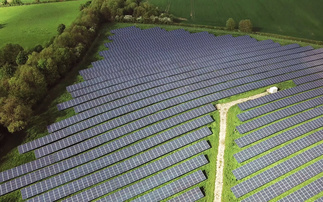On the face of it, Good Energy should have been encouraged to hear George Osborne refer yesterday to the huge opportunity that the "Green Energy Revolution" offers the UK. And that he claims to want to create a culture in which new businesses can flourish in the UK. But looking at the detail behind the headlines, published in the Red Book, it seems that these measures don't apply to businesses in the green sector.
Buried in the middle of the document, on page 52, is the news of improved funding terms for both the Enterprise Investment Scheme (EIS) and Venture Capital Trusts (VCTs), schemes which are designed to encourage new businesses and entrepreneurs in the UK. However, there is one category of business which is specifically excluded: Feed-in Tariffs (FITs).
This seems nuts! It's going to make it even harder for new renewable energy businesses to grow. If it hadn't been for the EIS scheme, Good Energy would never have got off the ground 10 years ago - and while our business won't be directly affected by these measures, our mission to help grow renewables in the UK will be set back by this retrograde step.
A further body blow to FITs comes from plans to introduce a new framework to cap the impact of levy-funded support on energy bills. In other words, the government is taking the view that FIT is a burden on the consumer. We think this is misguided, FITs are a great way of helping families and businesses reduce their electricity bills by giving them more control of their energy use. Whatever framework the government is now proposing should take this into account.
Once again, there seems to be no joined-up thinking between DECC and the Treasury. While DECC has said that Electricity Market reforms should see FIT be used to help grow in low-carbon generation, the Treasury seems to be directly standing in the way of green entrepreneurs.
If the government doesn't address these measures the green energy revolution will be over before it's even started.
Juliet Davenport is founder and chief executive of Good Energy





